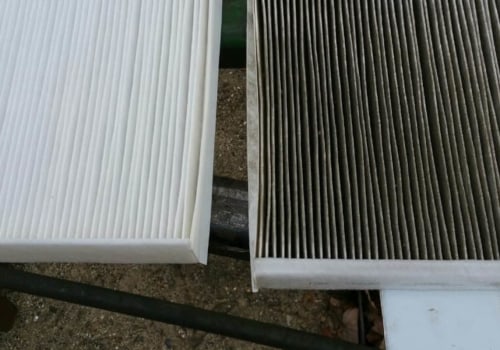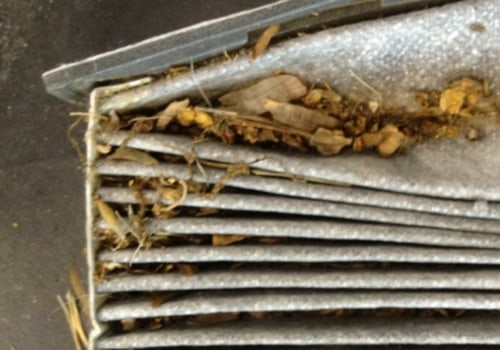Why Is My Central AC Running But Not Blowing Air? Common Causes and How an Air Filter Subscription Can Help
If your central AC runs but doesn't blow air, several common issues could be at play. A clogged air filter might restrict airflow, so checking and replacing filters regularly is important. Blower motor issues can also halt air movement and often require professional help. Obstructions or leaks in ductwork can impede air distribution as well. Thermostat problems can stop the blower from activating correctly too.
Subscribing to an air filter service helps keep up with maintenance, ensuring clean filters for optimal airflow. Interested in learning more about troubleshooting these problems?
Key Takeaways
1. Clogged air filters restrict airflow, causing AC units to operate without sending air; monthly inspections are important for upkeep.
2. Issues with the blower motor, like electrical failures or debris buildup, may stop effective air circulation even if the system runs.
3. Problems in ductwork, such as blockages or leaks, affect proper air distribution, resulting in weak airflow within spaces.
4. Malfunctions in thermostats can prevent blower fans from working; verifying correct settings and wiring is vital for smooth operation.
5. Subscriptions for air filters guarantee regular replacements, improving air quality and reducing clogs that lead to decreased AC performance.
Clogged Air Filter
One common reason central AC units fail to blow air involves a clogged air filter. Dust, dirt, and debris build up in the filter, creating airflow restrictions. This blockage stops systems from circulating cool air effectively, leading to discomfort.
To prevent this issue, follow simple maintenance tips. Check air filters monthly, especially during peak usage seasons. If a filter appears dirty or clogged, replacing it becomes necessary.
Most filters require replacement every 1-3 months, although this can vary based on environment and usage. Investing in high-quality filters that capture smaller particles improves indoor air quality and reduces airflow restrictions.
Setting reminders on phones or calendars can help ensure this task remains on track.
Blower Motor Issues
Have you noticed your central AC running but not blowing air? Blower motor issues might be to blame. This component plays a key role in pushing air through ducts and into living spaces. Different types exist, such as direct-drive and belt-driven, each with unique potential problems.
If the blower motor malfunctions, airflow could diminish despite the system appearing operational. Common troubles include electrical failures, worn bearings, or debris obstructing the motor. In these situations, repairs may be necessary.
Performing regular maintenance can extend the blower motor's lifespan while ensuring efficient operation. If diagnosing the problem feels overwhelming, reaching out to a professional is wise. Experts can pinpoint the issue and suggest suitable repairs.
A properly functioning blower motor is vital for optimal AC performance, so addressing these problems quickly can keep homes comfortable during hot months. Always check this component if airflow isn't up to par!
Ductwork Problems
If your blower motor appears fine but air isn't circulating, ductwork issues might be the cause. Ducts deliver cool air throughout your home, so any problems can lead to poor airflow.
Start by checking for visible obstructions like dust, debris, or furniture-blocking vents, which can limit airflow to living spaces.
Next, think about sealing ducts. Over time, leaks or gaps can develop, allowing cool air to escape before reaching its destination. This not only wastes energy but also causes uneven cooling and decreases efficiency.
Sealing leaks can improve airflow and reduce energy costs.
Another option is that ducts may be undersized or poorly designed for the system. If this seems likely, consulting a professional can help identify suitable solutions.
Addressing ductwork issues ensures smooth and efficient operation of your air conditioning system, keeping your home comfortable during hot months.
Regular maintenance checks can also help catch problems early, so being proactive is key!
Thermostat Malfunctions
A malfunctioning thermostat might prevent the central AC from blowing air. Incorrect calibration can result in wrong temperature readings. Consequently, the system may believe it's cooler than reality, which keeps the blower fan from activating. Frustration can arise as the house stays warm while the AC runs.
Faulty wiring also poses a problem. Damaged or loose connections between the thermostat and AC unit can hinder the proper signals needed for cool air. This could cause inconsistent cooling or complete failure of the fan.
To troubleshoot, start by checking thermostat settings. Ensure the mode is set to "cool" and the desired temperature is lower than the current room temperature.
If this doesn't fix the issue, testing the thermostat with a multimeter for proper voltage is advisable. If uncomfortable with this, contacting a professional is wise.
Regular maintenance and proper calibration help prevent these malfunctions, allowing efficient and effective AC performance.
Refrigerant Leaks
Thermostat problems can create several issues, but another frequent reason behind central AC not blowing air is refrigerant leaks. When an AC system loses refrigerant, cooling the air becomes ineffective. This loss usually arises from tiny holes or cracks in the evaporator coil or other components. A hissing sound or a puddle of liquid near an AC unit might signal a refrigerant leak.
Refrigerant leaks can lead to compressor issues as well. The compressor requires a certain level of refrigerant for proper functioning. Running low can cause overheating and potential failure, resulting in costly repairs. Addressing refrigerant leaks quickly is vital for maintaining a smooth operation.
Regular maintenance, including air filter checks, can help avoid these issues. An air filter subscription ensures timely delivery of clean filters, aiding system efficiency and lowering leak risks.
Taking proactive measures with an AC unit can prevent discomfort and expensive repairs later. If refrigerant leaks are suspected, contacting a professional is wise; assistance can restore the AC to blowing cool air.
Frequently Asked Questions
How Often Should I Replace My Air Filter?
Replace air filters every 1 to 3 months. This schedule depends on filter types and home conditions. Regular replacement helps maintain efficiency while extending the HVAC system lifespan.
Can a Dirty Air Filter Cause System Damage?
Yes, a dirty air filter can lead to airflow problems, resulting in system damage. Preventing this requires regular checks and replacements of the filter. Maintaining cleanliness ensures optimal performance and extends system life.
What Are Signs of a Failing Blower Motor?
Blowing issues such as weak airflow or strange noises indicate a failing blower motor. Pay attention to these signs for accurate motor diagnostics. Addressing problems early helps prevent further damage, ensuring smooth system operation.
How Do I Check for Duct Leaks?
Start with a duct inspection to check for leaks. Look for gaps or disconnected sections. Using smoke or incense can help visualize airflow, making it easier to identify and seal any leaks effectively.
Can Thermostat Settings Affect Air Blowing?
Yes, thermostat settings can influence airflow. An incorrect calibration or wrong temperature setting may disrupt how air blows through your space. Ensure that the settings match your desired indoor temperature for the best performance.
Learn more about HVAC Care from one of our HVAC solutions branches…
Filterbuy HVAC Solutions - Weston FL
2573 Mayfair Lane Weston FL 33327
(754) 296-3528
https://maps.app.goo.gl/E3tjmKf5VSWYghGc7



